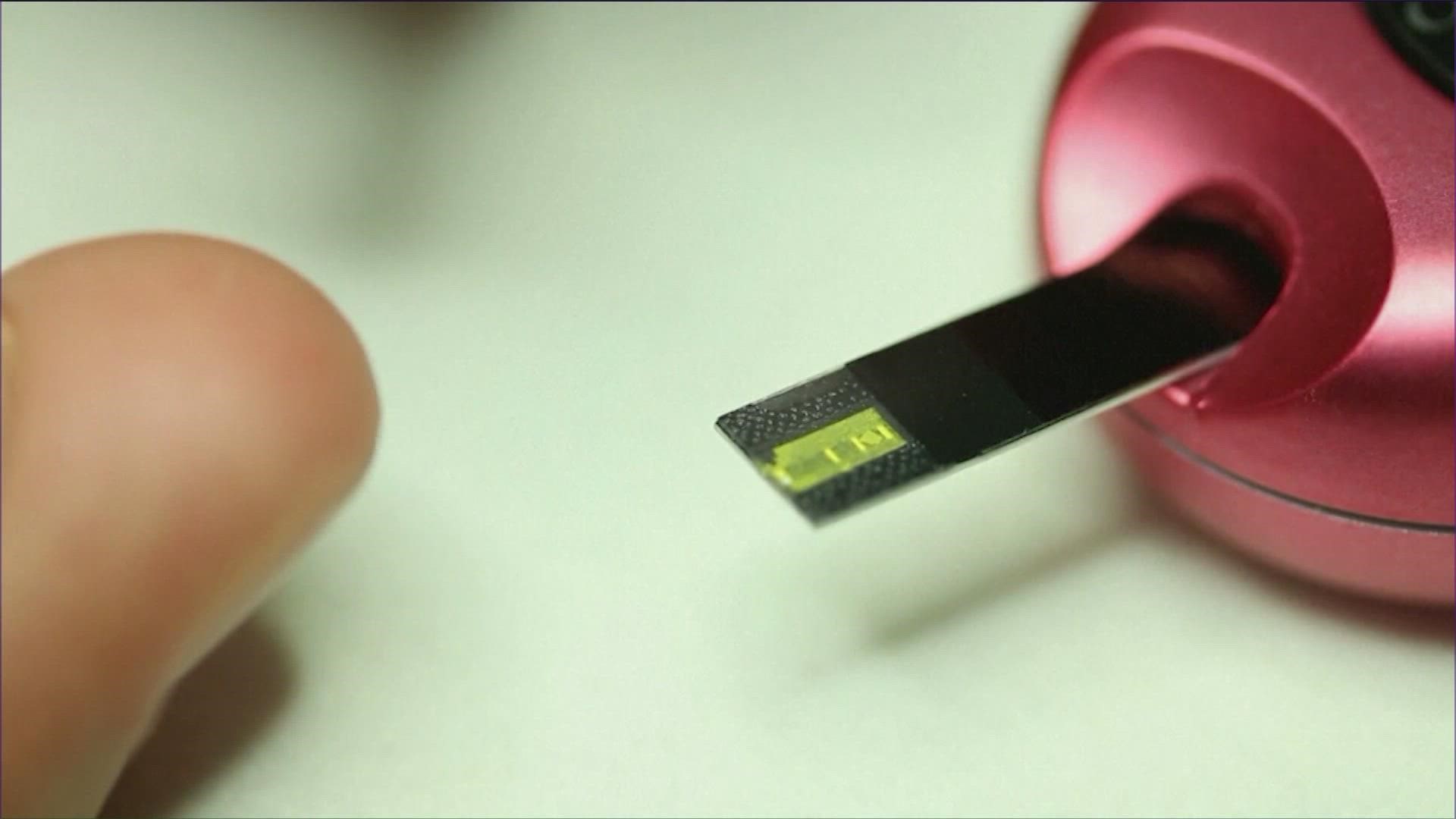AUSTIN, Texas — The weather forecast continues to have triple-digit days in Central Texas for some time. In the extreme heat, everyone needs to stay hydrated and take precautions to avoid heat exhaustion and heat stroke.
However, if you have certain medical conditions, such as diabetes, taking care of yourself is even more critical.
People with Type 1 and Type 2 diabetes feel the heat differently than those who don't have it. Higher temperatures can change how your body uses insulin, so you may need to test your blood glucose more often and adjust your insulin dose and what you eat and drink.
Dr. Luis Casaubon, a board-certified diabetes specialist from Texas Diabetes and Endocrinology says some of the medications that patients with diabetes take can further dehydrate them.
"When patients' blood sugars are high, that also can cause their dehydration to occur. And then once the dehydration starts to set in, then it paves the way for things like kidney damage, acid buildup in the blood and also increases the risk of things like infections, especially in the urinary tract. So some of our older and younger patients are really at risk for that," said Dr. Casaubon.
The most important and crucial activity patients can do is to remain hydrated. It's best to hydrate with water, juices or even sports drinks. Dr. Casaubon said patients with diabetes have to be careful with these products because they have extra sugar and that can further cause their blood sugars to get worse.
"Other tips include things like exercise. If you're exercising, take frequent breaks. Check yourself for symptoms of exhaustion. Check yourself for dizziness. And when available or when possible, exercise early in the morning, earlier in the day when the temperatures aren't as severe," stated Dr. Casaubon.
Higher temperatures can affect medications like insulin because insulin is required to be at room temperature or or cold. If the insulin is exposed to heat, it can go bad.
"It's advised not to leave insulin in a hot car. Store it at room temperature, insulin will stay good for about a month. If patients work outside or they have to carry their insulin on a trail or on a hike, then an ice pack can help to keep the temperature at a reasonable amount," said Dr. Casaubon.
The last thing to look out for during hot temperatures is signs and symptoms of heatstroke and heat exhaustion.
"It's important to recognize that as a medical emergency, these patients are in critical condition. Some of the symptoms [include] the body temperature being high, problems with confusion and difficulty maintaining conversations, cramping, seizures, even passing out or going into a coma," said Dr. Casaubon.
In a medical emergency, diabetic patients require immediate attention. It's recommended to call 911 or go to the emergency room.
PEOPLE ARE ALSO READING:

